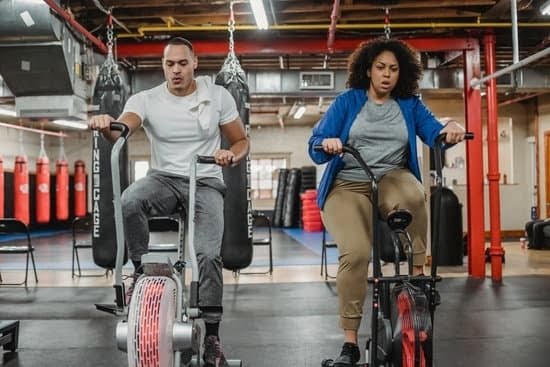Introduction
Local personal trainer certifications provide an excellent opportunity for individuals to become qualified professionals in the field of health and fitness. Popular courses offered by local trainers include Personal Training, Strength Training, Nutrition Coaching, Health Promotion and Exercise Physiology. Often times depending on the specific area being studied, additional certification classes such as Yoga Instruction, Pilates Instruction, and Functional Movement can also be taken.
When looking into local personal trainer certifications there are several aspects to consider. Firstly, it is important to ensure that the course curriculum is up to date and relevant for one’s goals in the fitness field and relevant for your desired job role. It is also important to research potential employers that might require certain certifications as part of their employment process. Additionally, understanding the credentialing agencies available within a certain region or country should be considered when selecting a program; organizations such as National Strength & Conditioning Association (NCSA), American Council on Exercise (ACE), and National Academy of Sports Medicine (NASM) are some of the larger international organizations that offer certifications in many different specializations within the industry.
In addition to accreditation, there are other aspects necessary for obtaining a high-quality personal trainer certification. Frequently these include hands-on practices with clients under supervision through apprenticeship programs; completion of exams; skills assessments covering all areas in which you plan on working; participation in workshops; continuing education modules;and customer satisfaction surveys often completed through online forums or real-life feedback loops. Upon completion of these various requirements individuals will receive their certificate designating them as certified personal trainers often allowing them to pursue employment in gyms and health clubs across their region or internationally if so desired.
Benefits and Opportunities of Becoming a Personal Trainer
Becoming a personal trainer has many benefits and opportunities. As a personal trainer, you will get to use your knowledge and expertise to improve people’s lives by helping them reach their fitness goals. You will have the ability to share advice, create customized exercise plans, provide motivation and encouragement, and genuinely help others succeed in their goals. The satisfaction of seeing tangible results from your efforts can be very rewarding. You don’t need a formal education or degree to become a personal trainer – just passion, commitment and the right certification courses such as local personal trainer courses!
By taking local personal trainer courses you gain industry recognition as you will have both theoretical knowledge of anatomy and physiology plus experience with physical training and diet. This means that upon successful completion of these courses you will be ranked higher than other unqualified trainers and positioned in a more favorable light when applying for roles at gyms or places of employment. Additionally, because most jobs require experience as well as qualifications, taking part in these local personal trainer courses gives you an advantage into gaining real training experience through internships or apprenticeships which can lead to career opportunities with more established companies. Being certified also increases your credibility and aids in marketing yourself for private consultations with clients who usually prefer qualified personnel since they are paying for it!
Where to Find Accredited Local Personal Trainer Courses
If you are interested in taking accredited local personal trainer courses, there are a few options to explore. Firstly, local colleges often have a range of certificate, diploma and even degree-level programmes in health, fitness and personal training. Many of these can be taken part-time or online so that you can attend lectures and workshops around your existing commitments. There are also organizations that award nationally recognized certificates for personal trainers which include some sort of supervised fieldwork as part of the programme. These organizations may also offer special events such as seminars and workshops on topics related to personal training and physical activity sciences. Furthermore, qualified health professionals may offer their own courses in local gyms or fitness centers, which can provide comprehensive hands-on experience with the advice from experienced professionals. Finally, it is possible to find international qualifications from trusted accreditation bodies online if you feel that these will give you an edge over other trainers in your area.
What to Look For When Choosing a Course
When choosing a local personal trainer course, it is important to ensure that the qualifications and certifications provided on completion of the course meet industry standards. You should also look into the experience of instructors or trainers and whether they are certified in a variety of exercise disciplines, including weight-training, aerobics, group fitness classes such as yoga and pilates, sports conditioning and nutrition. It is also important to consider size of classrooms for the training sessions, as smaller classroom sizes can make it easier for instructors to help you become more confident in your skillset. Additionally, reviews from past participants are also valuable sources of information when evaluating a particular course. Lastly, since personal training often involves communication with clients as well as designing customized training plans via online platforms for them, research into the IT tools that leading trainers use is important when considering if the course you’re looking into will provide you with an up-to-date selection of technologies.
What to Expect From the Course Content
Local personal trainer courses provide people with the knowledge and skills needed to become a certified trainer. These courses typically focus on topics such as anatomy, kinesiology, nutrition and diet, exercise programming, biomechanics, client assessment, preventative health screenings, motivation techniques, and business aspects of being a personal trainer. This type of coursework helps trainers understand how to design safe and effective training programs for clients that are tailored to their individual needs. The course also covers topics such as basic health care provider CPR/AED and first aid certification. Additionally, many local training courses offer specialty certifications in areas like functional fitness or weightlifting. All in all, these courses provide you with the tools you need to become a certified personal trainer in your area.
The Requirements and Qualifications for Becoming a Personal Trainer
In order to become a personal trainer, you will need to meet certain requirements and qualifications. First, you must be at least 18 years of age in order to qualify for most personal trainer courses. You will also need a high school diploma or equivalent; although most employers prefer some type of higher education, such as a college degree or an accredited certification program.
Beyond the basic requirements, there are additional qualifications that are necessary to become a successful personal trainer. These include physical fitness, knowledge in exercise science and kinesiology, and current certification from a reputable institution. Many aspiring trainers take part in internships or apprenticeships with experienced professionals in order to gain experience and familiarize themselves with various operational procedures.
In addition to the above individual requirements, it is essential for personal trainers to maintain valid first aid and CPR certifications as well as liability insurance before beginning work with clients. To ensure adequate customer service training and technical skills for job success, many programs also require trainers to obtain certification from specialty organizations such as ACE (American Council on Exercise), AFAA (Aerobics and Fitness Association of America), NSCA (National Strength and Conditioning Association), etc. Personal trainers should also possess strong communication skills so they can effectively motivate their clients while providing instruction in proper form and technique. Finally, having knowledge of nutrition will give trainers the advantage they need when creating individualized workout routines that fit their client’s needs and goals.
How to Get the Most Out of the Course Material
When taking any local personal trainer courses, it is important to get the most out of the course material. The most effective way to do this is by being proactive in your learning and engaging fully with the course. Preparation before taking a course includes researching the trainer, familiarizing yourself with the topics that will be covered, and assembling necessary materials such as equipment or textbooks. During the class itself, be sure to participate actively by asking questions, taking notes, and engaging in discussions with other participants. Completing accompanying assignments outside of class may help you retain key concepts more easily. You can use reading materials and online resources to gather additional information on personal training in your local area. Additionally, practice skills whenever possible and develop real-world experience working with clients outside of class wherever possible. Finally, make sure to review all lessons during breaks or after class to continue reinforcing your knowledge base. Doing so will ensure you get the most out of every personal trainer course available!
Extra Resources for Personal Trainers
Personal trainers are an asset to any gym – they help clients reach their fitness goals, provide valuable advice and resources on nutrition, and generally bring an uplifting presence to the gym atmosphere. However, becoming a personal trainer requires more than just enthusiasm – it takes specialized knowledge as well. That’s why there are a variety of local personal trainer courses available to get aspiring personal trainers the skills they need. These courses cover topics such as anatomy, physiology, kinesiology, nutrition, exercise program design, and special populations training. Depending on the level of the course, certification or qualifications may be available upon completion.
In addition to completing local personal trainer courses, personal trainers who commit themselves to learning all there is about physical exercise and wellness can build upon their basic understanding with additional resources. Such resources include online trainings, webinars from related organizations or companies like NASM (National Academy of Sports Medicine), workshops at industry conferences or events in nearby cities, and books from esteemed authors on relevant topics like fat loss and muscle gain protocols. Furthermore, professional memberships are available for networks that focus specifically on fitness professionals – this often allows access to even more workshops and webinars that could enhance one’s knowledge base even further. By committing to these extra-curricular activities alongside licensing tests and certification processes, trainers can better equip themselves with the skills they need to provide excellent guidance in helping others reach their fitness goals.
Summary
Local personal trainer courses are a great way to get certified as a personal trainer and enhance your career path or prepare yourself for professional certification. These courses provide you with comprehensive and relevant knowledge on the topics associated with personal training, such as exercise safety, nutrition and programming.
Benefits of taking local courses include cost savings, convenient locations and personalized instruction from experienced professionals. This is an especially good option for people that prefer a more hands-on approach to learning than what would be provided through an online course. Additionally, these local instructor-led classes often give learners the opportunity to interact with each other and form lasting relationships.
While there are numerous benefits associated with taking local personal trainer courses, there are also some things to keep in mind before enrolling. For instance, make sure to check the course’s approval status; some local courses may not be officially accredited by a governing body like NASM or ACE for example. Furthermore, many certification agencies require that examination fees be paid separately; so don’t forget factor this cost in your budget when considering whether or not this type of training is right for you.

Passionate about providing useful information to anyone with an interest in the field of Personal Training, I strive to pass on to our readers quality information and to answer any questions about Personal Trainers, the work they do and how to become one.





